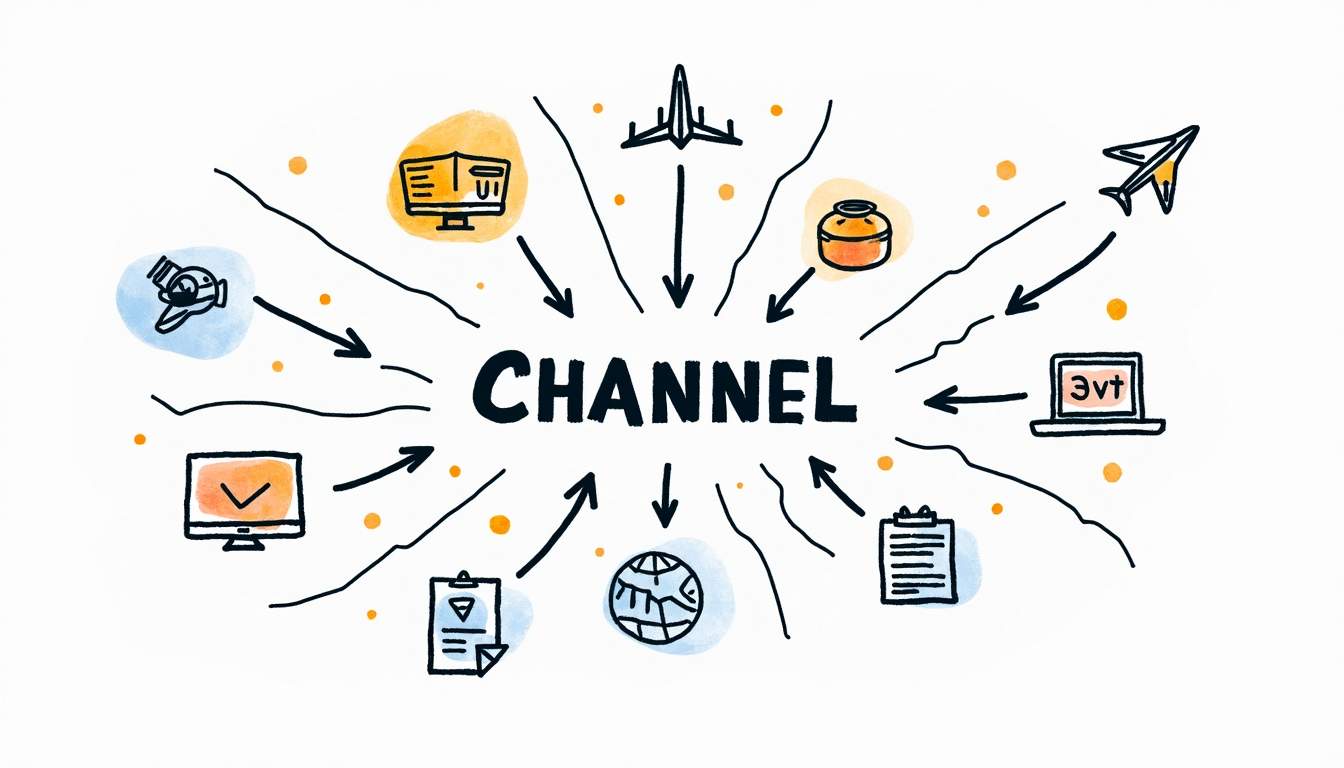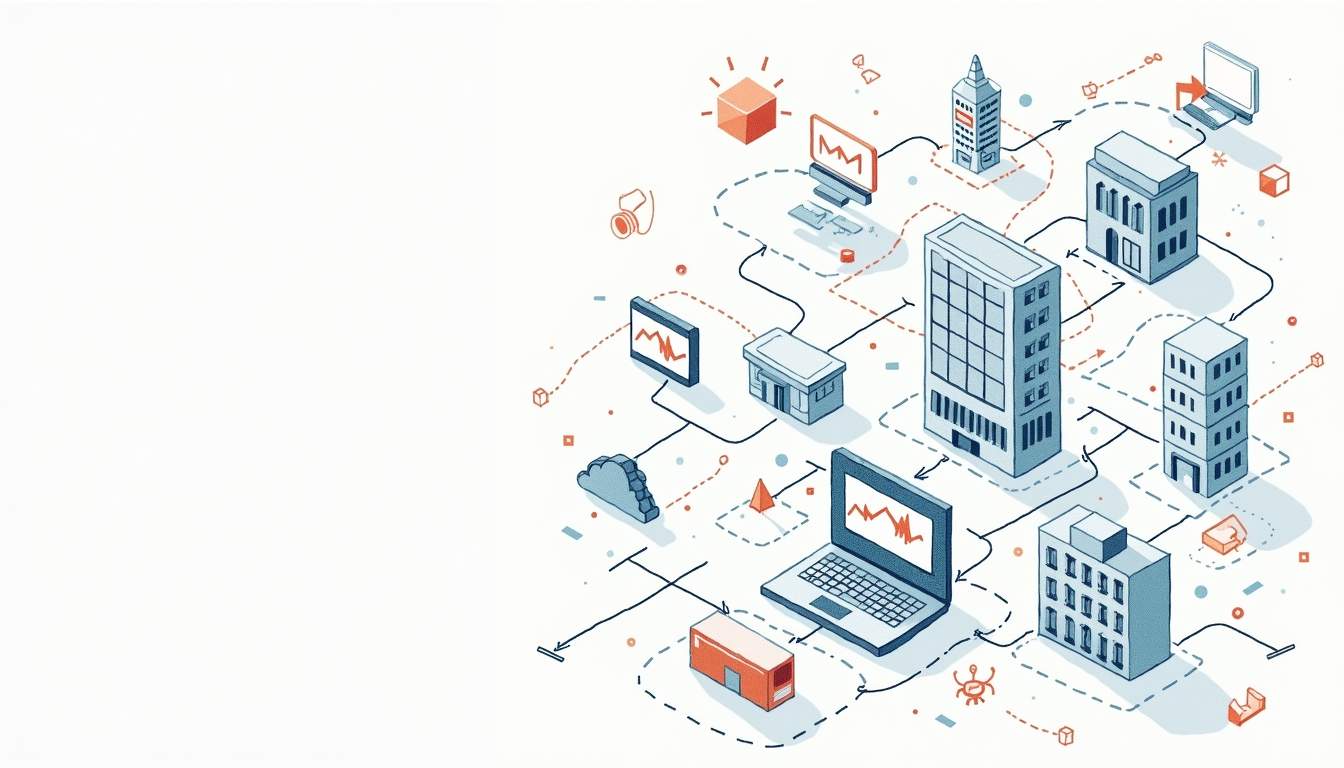Introduction to Channel Management
Channel management refers to the process through which hotels manage their distribution channels to optimize revenue and occupancy rates. In the hospitality industry, distribution channels can include online travel agencies (OTAs), direct bookings through the hotel’s website, global distribution systems (GDS), and even traditional travel agents. Effective channel management is crucial for maximizing visibility and ensuring that the hotel is positioned competitively in the marketplace.

The primary goal of channel management is to ensure that the right room is sold at the right price, to the right customer, at the right time. This involves not only setting competitive pricing but also managing inventory across various platforms to prevent overbooking and to maintain a healthy revenue stream. With the rise of technology in the hospitality sector, channel management has evolved to include sophisticated tools and software that automate many of these processes, allowing for real-time updates and analytics.
Understanding the intricacies of channel management is essential for hotel operators and revenue managers, as it directly impacts the hotel’s profitability and market positioning. This glossary entry will delve into the various components of channel management, its importance in hotel revenue management, and best practices for implementation.
Key Components of Channel Management
Distribution Channels
Distribution channels are the various platforms through which hotel rooms are sold. Each channel has its own set of advantages and disadvantages, and understanding these is critical for effective channel management. Common distribution channels include:
- Online Travel Agencies (OTAs): Websites like Expedia, Booking.com, and Hotels.com that aggregate hotel listings and allow customers to compare prices and book rooms.
- Direct Booking: Reservations made directly through the hotel’s own website, often incentivized with lower rates or exclusive offers.
- Global Distribution Systems (GDS): Networks that allow travel agents to access hotel inventory and book rooms on behalf of clients, commonly used in corporate travel.
- Traditional Travel Agents: Agents who provide personalized service and recommendations, often catering to specific customer needs.
Each of these channels can attract different customer segments, and hotels must strategically manage their presence across these platforms to maximize reach and revenue.
Pricing Strategies
Pricing strategies are a fundamental aspect of channel management. Hotels must determine optimal pricing for each distribution channel based on factors such as demand, competition, and market trends. Dynamic pricing is a common approach, where prices are adjusted in real-time based on occupancy levels, time of year, and other variables. This strategy allows hotels to capitalize on high-demand periods while remaining competitive during slower times.
Additionally, hotels may employ rate parity strategies to ensure consistent pricing across all channels. This helps to maintain brand integrity and customer trust, as guests are less likely to feel misled if they find the same rate regardless of where they book. However, it is essential to balance rate parity with the need to offer exclusive deals on direct bookings to encourage customers to book through the hotel’s own website.
Understanding the nuances of pricing strategies is vital for revenue managers, as even small changes in pricing can significantly impact overall revenue and occupancy rates.
Inventory Management
Inventory management involves tracking and controlling the availability of rooms across various distribution channels. Effective inventory management ensures that hotels do not overbook or underbook their rooms, which can lead to lost revenue or customer dissatisfaction. This process is often facilitated by channel management software that provides real-time updates on room availability and bookings.
Hotels must also consider the allocation of inventory to different channels. For instance, a hotel may choose to allocate a higher number of rooms to OTAs during peak seasons when demand is high, while reserving a larger share for direct bookings during off-peak times to encourage guests to book directly.
Proper inventory management is critical for maintaining a balanced revenue stream and ensuring that the hotel can meet customer demand without compromising service quality.
The Importance of Channel Management in Hotel Revenue Management
Channel management plays a pivotal role in hotel revenue management by directly influencing occupancy rates and revenue generation. By effectively managing distribution channels, hotels can enhance their visibility in the marketplace, attract a broader customer base, and ultimately drive more bookings.

Moreover, channel management allows hotels to analyze performance metrics across different channels, providing valuable insights into customer behavior and preferences. This data can inform marketing strategies, pricing decisions, and promotional efforts, enabling hotels to tailor their offerings to meet the needs of their target audience.
In an increasingly competitive landscape, where travelers have access to a multitude of booking options, effective channel management can be the differentiating factor that sets a hotel apart from its competitors. By optimizing distribution strategies, hotels can ensure they remain relevant and appealing to potential guests.
Best Practices for Effective Channel Management
Utilizing Technology
In today’s digital age, leveraging technology is essential for effective channel management. Many hotels utilize channel management software that integrates with their property management systems (PMS) to automate updates across all distribution channels. This technology can provide real-time data on bookings, availability, and pricing, allowing hotels to make informed decisions quickly.
Additionally, advanced analytics tools can help hotels track performance metrics, identify trends, and forecast demand. By utilizing these technological solutions, hotels can streamline their operations and enhance their overall revenue management strategy.
Investing in technology not only improves efficiency but also allows hotels to respond swiftly to market changes, ensuring they remain competitive in a fast-paced environment.
Regular Performance Analysis
Regularly analyzing the performance of each distribution channel is crucial for effective channel management. Hotels should track key performance indicators (KPIs) such as occupancy rates, average daily rates (ADR), revenue per available room (RevPAR), and channel contribution to overall revenue. This data can help identify which channels are performing well and which may need adjustments.
By conducting thorough performance analyses, hotels can make data-driven decisions regarding pricing, inventory allocation, and marketing strategies. This ongoing evaluation allows for continuous improvement and optimization of channel management efforts.
Furthermore, understanding the performance of different channels can help hotels tailor their marketing efforts to target specific customer segments more effectively, enhancing overall revenue potential.
Building Strong Relationships with Distribution Partners
Establishing and maintaining strong relationships with distribution partners is vital for successful channel management. Hotels should communicate regularly with OTAs, GDS providers, and other partners to ensure that they are aligned on pricing, promotions, and inventory management strategies.
Collaborating with distribution partners can lead to mutually beneficial arrangements, such as exclusive promotions or featured listings, which can enhance visibility and drive bookings. Additionally, strong relationships can facilitate better support and resources from partners, ultimately benefiting the hotel’s revenue management efforts.
Investing time and effort into building these relationships can yield significant returns in terms of increased bookings and revenue growth.
Challenges in Channel Management
Overdependence on OTAs
One of the primary challenges in channel management is the potential overdependence on online travel agencies (OTAs). While OTAs can provide significant visibility and bookings, relying too heavily on them can lead to increased commission costs and reduced profitability. Hotels must strike a balance between utilizing OTAs for exposure and encouraging direct bookings to maximize revenue.
To mitigate this challenge, hotels can implement strategies to incentivize direct bookings, such as offering exclusive discounts, loyalty programs, or added value services. By promoting the benefits of booking directly, hotels can reduce their reliance on OTAs and enhance their overall revenue management strategy.
Additionally, hotels should continuously evaluate their distribution mix to ensure they are not overly reliant on any single channel, which can expose them to risks associated with market fluctuations.
Market Fluctuations and Competition
The hospitality industry is subject to various market fluctuations, including seasonal demand changes, economic conditions, and competitive pressures. These factors can significantly impact occupancy rates and revenue, making effective channel management even more critical.
Hotels must remain agile and responsive to these changes, adjusting their pricing and distribution strategies accordingly. This may involve implementing dynamic pricing models, reallocating inventory, or launching targeted marketing campaigns to attract customers during slower periods.
Staying informed about market trends and competitor activities is essential for navigating these challenges and ensuring that the hotel remains competitive in a rapidly evolving landscape.
Conclusion
Channel management is a vital component of hotel revenue management, encompassing the strategies and practices that hotels employ to optimize their distribution channels and maximize revenue. By understanding the key components of channel management, implementing best practices, and addressing challenges, hotels can enhance their visibility, attract a diverse customer base, and ultimately drive bookings and profitability.

As the hospitality industry continues to evolve, staying abreast of technological advancements and market trends will be crucial for hotels looking to succeed in their channel management efforts. By prioritizing effective channel management, hotels can position themselves for long-term success in an increasingly competitive marketplace.
Discover How Prosper Hotels Can Enhance Your Revenue Management
Ready to take your hotel’s channel management to the next level? At Prosper Hotels, we specialize in elevating your hotel’s performance with our comprehensive revenue management solutions. Our team is passionate about leveraging the latest digital marketing strategies and providing efficient group housing services to boost your occupancy rates and profitability. Embrace the opportunity to transform your hotel’s revenue strategy and ensure the satisfaction of your team. Learn More about how we can assist you in achieving your hotel’s maximum potential.


 Drive More Hotel Revenue
Through Untapped Strategies
Drive More Hotel Revenue
Through Untapped Strategies
